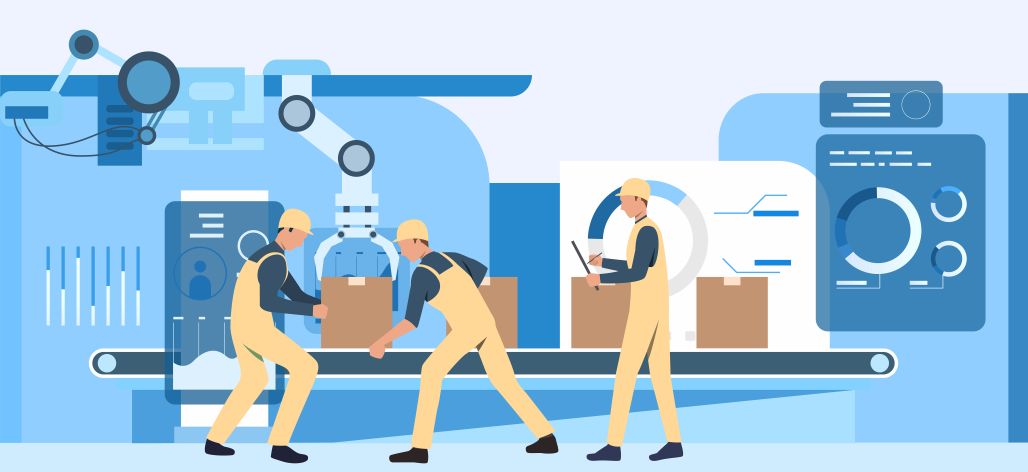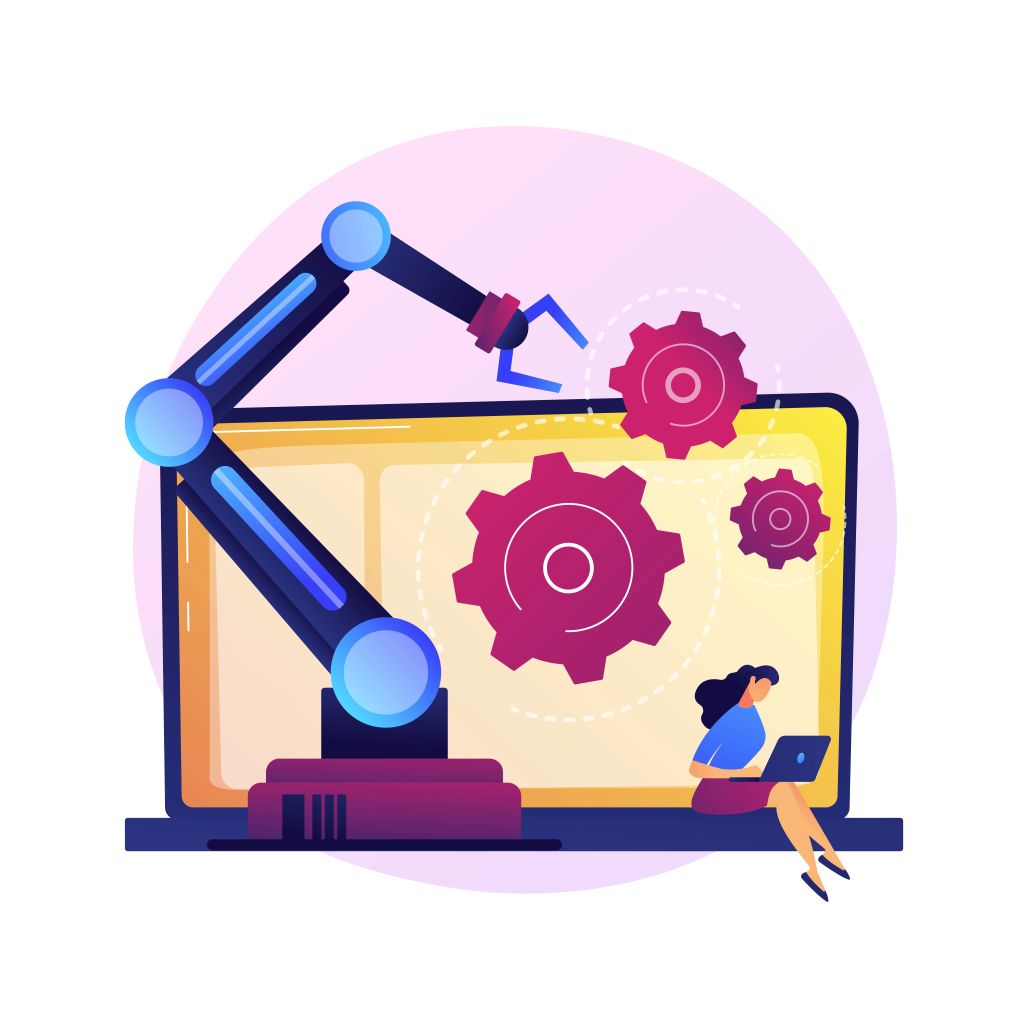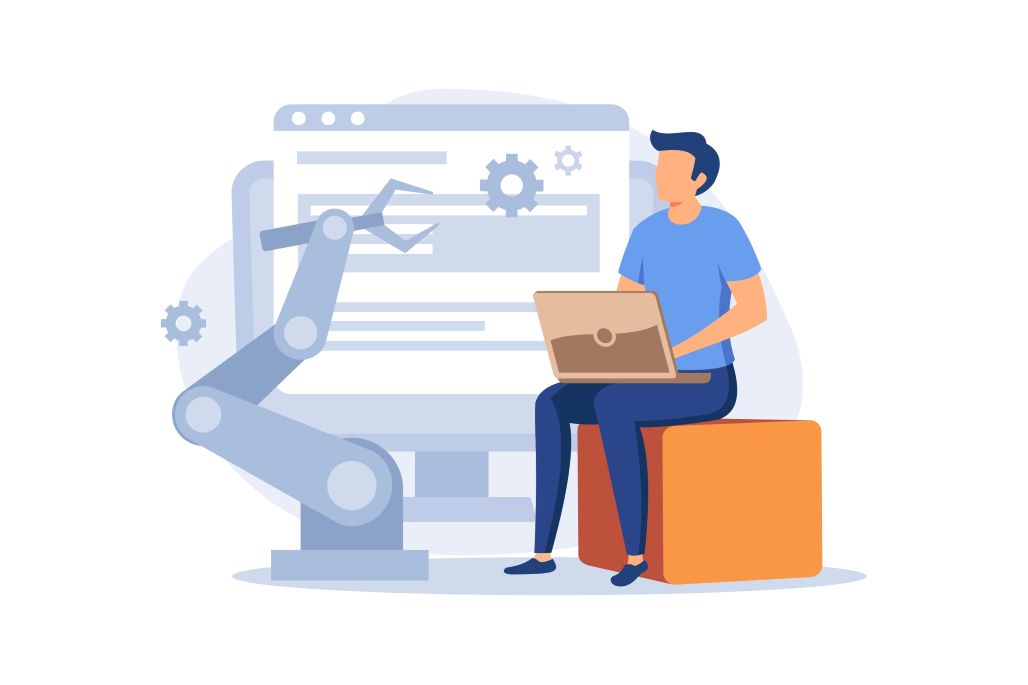In today’s fast-paced manufacturing environment, staying compliant with evolving regulations is a top priority. Companies must ensure that employees are consistently trained to meet quality standards, workplace safety requirements, and regulatory obligations. An LMS for manufacturing offers a transformative solution, delivering efficient and standardized training while reducing operational risks and enhancing workforce performance.
Many manufacturing leaders turn to platforms like Calibr , an AI-powered personalized learning platform, to streamline compliance training, improve engagement, and ensure regulatory excellence. Whether you operate a single plant or multiple production sites, an LMS can help meet industry standards and support continuous learning initiatives.
Explore how Calibr's AI-powered solutions can elevate your compliance training today by signing up or contacting us for more details

Why Manufacturing Compliance Training is Critical
Manufacturing operations are subject to a wide range of rules and regulations—from occupational safety and environmental standards to product quality requirements. Non-compliance can result in costly fines, legal penalties, and operational disruptions.
Traditional classroom-based training often struggles to keep up with the rapid pace of regulatory changes. Employees may miss sessions, lose track of important updates, or fail to retain critical knowledge. A learning management system for manufacturing like Calibr solves these challenges by centralizing training, tracking progress, and delivering content digitally.
How LMS for Manufacturing Enhances Compliance
Implementing an LMS for manufacturing transforms traditional compliance training into a structured, efficient, and measurable process. In the manufacturing sector, where regulatory requirements are stringent and constantly evolving, a learning management system for manufacturing ensures that employees receive consistent, up-to-date, and relevant training.
A lms for manufacturing industry allows organizations to centralize all compliance-related courses and materials, creating a single source of truth. For instance, platforms like Calibr Content Hub provide centralized access to essential training resources, making it easy for employees across multiple locations to stay aligned with regulatory standards.
Key ways an LMS for manufacturing enhances compliance include:
Real-Time Tracking and Reporting: Managers can monitor employee progress, identify knowledge gaps, and ensure timely completion of manufacturing compliance training modules. Using Calibr Real-time Analytics, supervisors gain actionable insights into training effectiveness and regulatory adherence.
Personalized Learning Paths: Not all employees require the same training. With Calibr , organizations can implement personalized learning paths, tailoring compliance courses to specific roles, skill levels, and operational needs. This ensures that employees learn exactly what is relevant to their tasks.
Digital Manufacturing Training: Traditional classroom-based sessions are time-consuming and difficult to scale. A digital manufacturing training approach delivered through Calibr’s mobile learning allows employees to complete compliance modules anytime and anywhere, ensuring learning continuity without disrupting production schedules.
Scalable and Cost-Efficient: Whether your organization uses the best LMS for manufacturing in a single plant or across multiple sites, platforms like Calibr Learn can scale seamlessly. By automating manufacturing compliance training, companies reduce training costs and minimize compliance risks, all while maintaining operational efficiency.
By integrating these capabilities, an LMS for manufacturing industry not only ensures compliance but also fosters a proactive safety and quality culture across the organization.
Best Practices for Implementing Manufacturing Compliance Training

To maximize the benefits of an LMS for manufacturing, it is important to follow strategic best practices when deploying manufacturing compliance training programs.
Align Training with Organizational Goals: Ensure that compliance programs are closely linked to company objectives such as reducing workplace incidents, maintaining quality standards, and meeting regulatory requirements. Platforms like Calibr Learn make it easy to map courses to specific business outcomes.
Leverage AI-Powered Content: By using Calibr’s AI-powered course authoring to create engaging, accurate, and up-to-date training modules. AI-powered content ensures consistency and saves time in updating materials according to new regulations.
Encourage Employee Engagement: Compliance training can feel repetitive if not delivered interactively. Integrate gamification, microlearning, quizzes, and collaborative exercises through Calibr’s learning management system for manufacturing to keep employees engaged and motivated.
Regularly Update Training Content: Compliance rules evolve continuously. Using a digital manufacturing training approach allows organizations to update courses efficiently, ensuring that all employees are trained according to the latest standards. Calibr Content Hub facilitates seamless content updates and version control.
Monitor and Analyze Training Effectiveness: Implement robust tracking and analytics to measure completion rates, knowledge retention, and areas of improvement. Calibr Real-time Analytics provides insights that allow managers to intervene proactively and improve the overall effectiveness of manufacturing compliance training.
Foster a Continuous Learning Culture: Beyond regulatory compliance, using a learning management system for manufacturing encourages ongoing skill development, creating a workforce that is agile, knowledgeable, and prepared for operational challenges.
By following these best practices, manufacturers can ensure that their lms for manufacturing industry is fully optimized to meet compliance goals, reduce operational risks, and enhance workforce competency.
Benefits of LMS for Manufacturing Compliance
Adopting an LMS for manufacturing offers numerous advantages, ranging from regulatory adherence to operational efficiency. Some of the key benefits include:
Consistent and Standardized Training: With a learning management system for manufacturing, all employees receive uniform, high-quality compliance training. Platforms like Calibr Learn ensure that everyone follows the same learning path, reducing knowledge gaps and mitigating compliance risks.
Enhanced Employee Retention and Knowledge: Interactive digital manufacturing training and personalized modules help employees retain information better and apply it effectively in day-to-day operations.
Time and Cost Savings: By automating manufacturing compliance training, companies reduce dependency on instructor-led sessions, printed materials, and travel costs. Using Calibr Craft and Calibr Content Hub, training development and management become more efficient and cost-effective.
Improved Regulatory Adherence: A robust lms for manufacturing industry provides digital records of training completion and certifications, which are crucial during audits and regulatory inspections. Calibr’s real-time analytics also allow organizations to track compliance metrics and demonstrate adherence to regulators.
Scalability and Flexibility: The best LMS for manufacturing can scale to multiple plants, shifts, and regions. Mobile-friendly platforms like Calibr Mobile Learning enable employees to complete training anytime, even on the shop floor or remote locations.
Proactive Risk Management: By monitoring learning progress and identifying knowledge gaps, organizations can prevent incidents before they occur, ensuring workplace safety and operational excellence.
Employee Engagement and Motivation: Features such as gamification, personalized learning paths, and collaborative learning encourage participation, making manufacturing compliance training more effective and enjoyable.
In summary, an LMS for manufacturing is not just a tool for compliance; it is a strategic enabler of workforce development, operational efficiency, and regulatory excellence. Leveraging platforms like Calibr ensures that compliance training is effective, measurable, and scalable.
Features of the Best LMS for Manufacturing

Selecting the best LMS for manufacturing involves prioritizing features that enhance compliance, engagement, and learning retention. Key capabilities include:
AI-Powered Course Authoring: Design interactive and personalized courses using intelligent tools like Calibr’s AI-Powered Course Authoring.
Collaborative Learning: Enable team-based learning, discussions, and social engagement to reinforce knowledge.
Personalized Learning Paths: Tailor courses to individual employee roles, skill levels, and compliance requirements.
Multi-Language Support: Train global teams with content available in multiple languages through platforms like Calibr Content Hub
Microlearning Modules: Deliver bite-sized, focused lessons that improve retention and reduce cognitive overload.
Gamification Elements: Boost motivation using points, badges, leaderboards, and challenges.
SCORM Compliance: Ensure compatibility with industry standards for content interoperability.
Assessment and Certification: Using Calibr's real time analytics track employee skills, provide certifications, and maintain regulatory records.
Single Sign-On (SSO): Simplify access while maintaining security and compliance standards.
Calibr has all these features in one comprehensive solution, making it a one-stop platform for all your manufacturing compliance training needs. Explore more about how Calibr can streamline your training here.
Digital Manufacturing Training: Driving Efficiency and Compliance
Modern manufacturing requires continuous skill development. Digital manufacturing training via an LMS enables companies to:
Provide ongoing compliance updates without disrupting production schedules.
Reduce errors, safety incidents, and operational downtime.
Offer self-paced learning for employees, ensuring comprehension and retention.
Platforms like Calibr AI-powered learning personalize content, adapting modules to each employee’s pace and performance. This ensures that training is relevant, engaging, and impactful.
Addressing Manufacturing Compliance Challenges
Manufacturers face a complex compliance landscape, particularly in highly regulated regions. MSMEs, for example, often struggle to meet extensive requirements with limited resources. According to The Times of India, India’s manufacturing MSMEs face over 1,450 regulations annually, incurring compliance costs ranging from Rs 13 lakh to Rs 17 lakh per year.
An LMS for manufacturing mitigates these challenges by providing:
Standardized and automated compliance training.
Real-time tracking to identify gaps and prevent regulatory violations.
Digital records for audits and inspections.
Best Practices for Implementing Manufacturing Compliance Training
To maximize the benefits of an LMS for manufacturing, it is important to follow strategic best practices when deploying manufacturing compliance training programs.
Align Training with Organizational Goals: Ensure that compliance programs are closely linked to company objectives such as reducing workplace incidents, maintaining quality standards, and meeting regulatory requirements. Platforms like Calibr Learn make it easy to map courses to specific business outcomes.
Leverage AI-Powered Content: Use tools like Calibr Craft to create engaging, accurate, and up-to-date training modules. AI-powered content ensures consistency and saves time in updating materials according to new regulations.
Encourage Employee Engagement: Compliance training can feel repetitive if not delivered interactively. Integrate gamification, microlearning, quizzes, and collaborative exercises through Calibr’s learning management system for manufacturing to keep employees engaged and motivated.
Regularly Update Training Content: Compliance rules evolve continuously. Using a digital manufacturing training approach allows organizations to update courses efficiently, ensuring that all employees are trained according to the latest standards. Calibr Content Hub facilitates seamless content updates and version control.
Monitor and Analyze Training Effectiveness: Implement robust tracking and analytics to measure completion rates, knowledge retention, and areas of improvement. Calibr Real-time Analytics provides insights that allow managers to intervene proactively and improve the overall effectiveness of manufacturing compliance training.
Foster a Continuous Learning Culture: Beyond regulatory compliance, using a learning management system for manufacturing encourages ongoing skill development, creating a workforce that is agile, knowledgeable, and prepared for operational challenges.
By following these best practices, manufacturers can ensure that their lms for manufacturing industry is fully optimized to meet compliance goals, reduce operational risks, and enhance workforce competency.
Benefits of LMS for Manufacturing Compliance
Adopting an LMS for manufacturing offers numerous advantages, ranging from regulatory adherence to operational efficiency. Some of the key benefits include:
Consistent and Standardized Training: With a learning management system for manufacturing, all employees receive uniform, high-quality compliance training. Platforms like Calibr Learn ensure that everyone follows the same learning path, reducing knowledge gaps and mitigating compliance risks.
Enhanced Employee Retention and Knowledge: Interactive digital manufacturing training and personalized modules help employees retain information better and apply it effectively in day-to-day operations.
Time and Cost Savings: By automating manufacturing compliance training, companies reduce dependency on instructor-led sessions, printed materials, and travel costs. Using Calibr Craft and Calibr Content Hub, training development and management become more efficient and cost-effective.
Improved Regulatory Adherence: A robust lms for manufacturing industry provides digital records of training completion and certifications, which are crucial during audits and regulatory inspections. Calibr’s real-time analytics also allow organizations to track compliance metrics and demonstrate adherence to regulators.
Scalability and Flexibility: The best LMS for manufacturing can scale to multiple plants, shifts, and regions. Mobile-friendly platforms like Calibr Mobile Learning enable employees to complete training anytime, even on the shop floor or remote locations.
Proactive Risk Management: By monitoring learning progress and identifying knowledge gaps, organizations can prevent incidents before they occur, ensuring workplace safety and operational excellence.
Employee Engagement and Motivation: Features such as gamification, personalized learning paths, and collaborative learning encourage participation, making manufacturing compliance training more effective and enjoyable.
In summary, an LMS for manufacturing is not just a tool for compliance; it is a strategic enabler of workforce development, operational efficiency, and regulatory excellence. Leveraging platforms like Calibr ensures that compliance training is effective, measurable, and scalable.
Conclusion: Future-Ready Compliance with LMS
Compliance in manufacturing is a continuous process that requires consistent training and adaptation to new regulations. By leveraging an LMS for manufacturing, organizations can streamline training, enhance workforce skills, and foster a culture of continuous improvement.
Investing in digital compliance training platforms like Calibr not only ensures regulatory adherence but also boosts operational excellence, employee engagement, and long-term growth.
Ready to transform your manufacturing compliance training and ensure regulatory excellence?
Explore Calibr today by signing up for a 14 day free trail or by contacting us and scheduling a demo to get started


